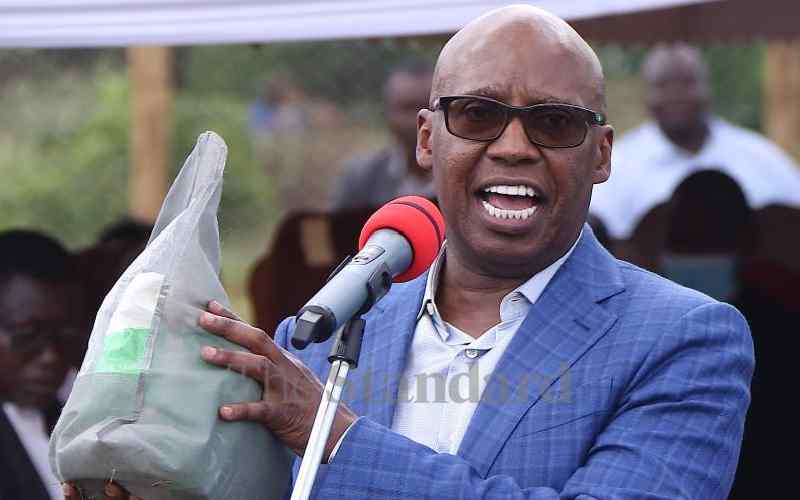×
The Standard e-Paper
Smart Minds Choose Us

Businessman Jimmy Wanjigi during a fundraiser at Bondo ACK Church on October 11, 2020. [Collins Oduor, Standard]
In the five-year tragicomedy that is the General Election, the latest scene ahead of next year’s show is the announcement by businessman and political fixer Jimi Wanjigi aka James Bond that he will be on the presidential ballot. Expect Jimi not to be another of the run-of-the-mill types. He will bring colour, bags of money, and high intrigue. Here is a close-up of the man and his game.